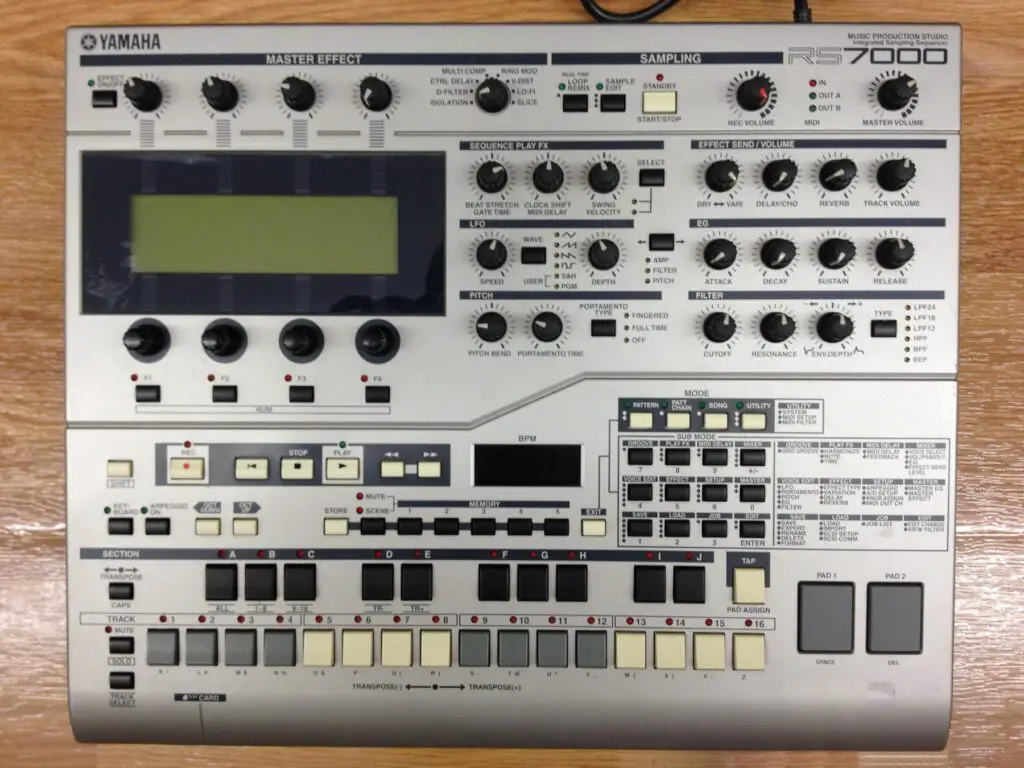Are you someone who has always been fascinated with music production but never knew where to start? Do you find yourself constantly tapping your foot to the beat of your favorite songs, wondering how they were made? Look no further. In this beginner’s tutorial, we’ll guide you through the basics of music production and equip you with the knowledge and tools needed to get started on your own musical journey. So grab a notepad, put on your headphones, and let’s dive into the exciting world of music production together.
Table of Contents
Introduction to Music Production for Beginners
Music production is the process of creating music using various tools and techniques. It involves recording, editing, arranging, and mixing audio to produce a final track. If you’re a beginner in music production, it can be overwhelming to know where to start. But don’t worry, with the right equipment and knowledge, you can create professional-sounding tracks from the comfort of your own home.
Before diving into the technical aspects of music production, it’s important to have a clear understanding of what type of music you want to create. This will help guide your decisions when it comes to selecting equipment and software.
Additionally, having a basic understanding of music theory can be helpful in creating melodies and harmonies that sound pleasing to the ear. But don’t worry if you’re not a music theory expert – there are plenty of resources available online to help you learn the basics.
Overall, getting started with music production requires patience and dedication. With practice and perseverance, you can develop your skills and create amazing tracks that showcase your unique style and creativity.

Essential Equipment and Software for Music Production
To get started with music production, you need some essential equipment and software. Firstly, you will need a computer or laptop capable of running Digital Audio Workstation (DAW) software such as Ableton Live, Logic Pro X or FL Studio. These DAWs will allow you to record audio, create beats and melodies, and mix your tracks.
You’ll also need a good set of studio monitors or headphones that accurately reproduce sound. Investing in quality gear can make all the difference in how your final product sounds.
In addition to this hardware, acquiring high-quality plugins is crucial for enhancing the overall sound of your tracks. Plugins like Serum by Xfer Records offer highly customizable features on synthesizers while FabFilter comes packed with incredible EQ systems.
Lastly it’s important not to overlook physical components such as MIDI keyboard controllers which facilitate easier control over sounds produced via virtual instruments within the DAWs.

Understanding the Basics of Music Theory for Production
Music theory is the foundation of music production and it’s important for beginners to have a basic understanding of this. Key signatures are crucial to understand as they tell us what notes make up a song or scale. It’s also important to understand the relationship between different chords and how they form progressions in songs. This helps with creating harmonies and melodies that sound pleasing to the ear. Another key aspect of music theory is rhythm, which involves understanding beats, time signatures, and tempo. It’s necessary for producers to know how rhythm affects their tracks so they can create grooves that move people.
In addition, learning about scales, modes, intervals, and cadences will give beginners more tools when composing music in any genre. While it may seem daunting at first, taking the time to learn some basic music theory concepts will benefit any aspiring producer by allowing them greater creativity when making their tracks come alive through composition and arrangement.

Recording and Editing Audio in Music Production
Choosing the Right Software and Equipment for Audio Production
When it comes to recording and editing audio in music production, choosing the right software and equipment is crucial. For beginners, a digital audio workstation (DAW) such as GarageBand, Ableton Live or FL Studio are great options. If you plan on recording vocals or live instruments, you’ll also need an audio interface like Focusrite Scarlett 2i2 or Behringer U-Phoria UM2. A good pair of headphones and/or monitors like Audio-Technica ATH-M50x or KRK Rokit G5 are necessary for accurate monitoring during the editing process. Don’t skimp on quality when it comes to your equipment – investing in reliable gear will save time and frustration down the road.
Recording Techniques: Tips, Tricks, and Best Practices
When it comes to recording audio in music production, there are several tips and tricks that can help you achieve the best results. Firstly, make sure to use a high-quality microphone and record in a sound-proofed room to avoid unwanted background noise. Secondly, experiment with microphone placement to find the sweet spot for capturing your desired sound. When editing your recordings, ensure that timing is precise and any mistakes or unwanted sounds are removed using software like Audacity or Pro Tools. Remember: clean recordings make for a polished final product!
Editing Audio for Clarity and Creating a Professional Sound
When recording audio, it’s important to pay attention to detail and ensure that every sound is clear and crisp. Editing software such as Audacity or Pro Tools can be used to remove unwanted noise, adjust volume levels, and add effects like reverb or echo. To create a professional sound, proper microphone placement must also be considered during the recording process. EQ adjustments may need to be made for certain sounds in order to achieve balance within the mix. It’s important not to over-edit and lose the natural feel of the music but rather use editing tools strategically for clarity and overall enhancement of the final product.
Mixing and Mastering Your Tracks for a Polished Final Product
Mixing and mastering are essential steps in music production that can take your tracks to the next level. Mixing involves adjusting the levels, panning, and EQ of each audio track to create a balanced sound. It also involves adding effects such as reverb or delay for depth and dimension. Mastering is the final step where you prepare your mixed tracks for distribution by ensuring they sound polished and cohesive across different listening systems. Using compression, limiting, and EQ techniques, along with careful volume adjustments will help ensure a high-quality final product that stands out among competitors. Don’t overlook these critical steps if you want to produce professional-grade music!
Creating Beats and Melodies in Music Production
When it comes to music production, creating beats and melodies is the heart of the process. Finding your unique sound is crucial to being a successful producer. Experiment with different instruments and techniques until you find what works for you.
Start with drums: they are the foundation of any great beat. Use samples or record your own sounds to create a rhythm that will get people moving. Once you have a solid drum pattern, start adding other elements like basslines, chords, and lead melodies.
A good melody can make or break a track. Knowing key signatures is important when writing melodies, as it can affect how notes interact with each other in a scale. Play around on an instrument until you find something that resonates with you – even if it’s just one note at first.
Remember that simplicity often leads to greatness in music production. Don’t overcomplicate things by trying to fit too many elements into one track – sometimes less truly is more. With practice and patience, creating memorable beats and melodies will come naturally to you as a producer.

Mixing and Mastering Your Tracks in Music Production
Understanding the Basics of Mixing and Mastering in Music Production
To create professional-sounding music, it’s essential to understand the basics of mixing and mastering in music production. Mixing involves adjusting the levels, panning, and equalization of different audio tracks to create a balanced sound. Mastering takes that mix and applies overall adjustments such as compression, limiting, and stereo enhancement to ensure your track sounds great on any system. It’s crucial to keep in mind that proper mixing can make or break your track’s impact on an audience. Dedicate enough time perfecting the mix before moving onto mastering for better results. Take your time with these processes and experiment until you achieve that polished sound you’re aiming for!
Tips and Tricks for Achieving a Professional Sound in Your Tracks
In order to achieve a professional sound in your tracks, it’s important to have a solid understanding of mixing and mastering techniques. One crucial tip is to EQ each individual track so that they all fit together seamlessly in the mix. Use compression sparingly, as too much can squash the dynamics of your music production beginner tracks. A great way to add depth and space is through reverb and delay effects, but be careful not to overuse them. Another essential tip is referencing; compare your mix with other professionally mixed tracks in similar genres on different audio systems to ensure consistent quality across various devices. Remember that practice makes perfect – keep honing your skills!
The Importance of EQ, Compression, and Reverb in Mixing and Mastering
When it comes to music production for beginners, mixing and mastering can be a daunting task. However, understanding the importance of EQ, compression, and reverb can greatly improve the quality of your tracks. EQ allows you to adjust the levels of different frequencies in your mix, while compression helps to even out the dynamic range of your audio. Reverb adds depth and space to your tracks. It’s important to use these tools in moderation and make adjustments based on what sounds good to your ears. Remember, mixing and mastering is a skill that takes time and practice to perfect, so don’t be afraid to experiment and try new things!
Common Mistakes to Avoid When Mixing and Mastering Your Tracks
When it comes to mixing and mastering your tracks in music production, there are a few common mistakes that beginners should avoid. Firstly, overcompression can make your tracks sound flat and lifeless. It’s important to use compression sparingly and only when necessary. Secondly, over-EQing can also have a negative impact on your tracks. It’s easy to get carried away with EQ, but too much can result in a harsh or muddy sound. Remember to trust your ears and make subtle adjustments as needed. By avoiding these common mistakes, you can ensure that your tracks sound professional and polished.
Tips for Success in Your Music Production Journey
-
*Consistency* is key when it comes to music production. Make sure you set aside dedicated time for practicing and experimenting with new techniques. Don’t be afraid to try new things and make mistakes, as they can often lead to unique sounds that set your music apart.
-
Networking with other musicians and producers is essential in the industry. Attend local events or join online communities where you can share your work and gain feedback from others in the field. Collaborating with other artists can also bring fresh perspectives and inspiration to your productions.
-
Keep learning by taking courses, watching tutorials, reading articles, and listening to a wide variety of music genres. Expanding your knowledge base will help you stay current on trends, develop new skills, and find your own unique style within the ever-evolving landscape of music production.
-
Finally, don’t forget about the business side of things. Be proactive in promoting yourself through social media platforms such as Soundcloud or Bandcamp while exploring opportunities like licensing deals or sync placements for TV shows or films which can generate additional revenue streams for budding producers looking to grow their careers beyond just creating beats at home!
In conclusion, music production can be a rewarding and fulfilling hobby or career for anyone interested in creating their own music. With the right equipment, software, and knowledge of music theory, anyone can get started in this exciting field. From recording and editing audio to creating beats and melodies, there are endless possibilities for creativity in music production. Remember to take your time and practice regularly to improve your skills. And if you’re looking for more tips and tricks on music production, be sure to check out our other content. Happy producing!
Q & A
Who can benefit from learning music production as a beginner?
Anyone interested in creating music, regardless of age or musical background.
What equipment do I need to get started in music production?
A computer, Digital Audio Workstation software, and headphones or speakers.
How can I improve my music production skills as a beginner?
Practice consistently, watch tutorials, and seek feedback from experienced producers.
What if I have no musical experience, can I still learn music production?
Yes, music production can be learned by anyone, regardless of musical background.
How long does it take to become proficient in music production as a beginner?
It varies, but consistent practice and dedication can lead to proficiency in a matter of months.
But isn’t music production too complicated for beginners to learn?
While there is a learning curve, music production can be learned by anyone with dedication and practice.


